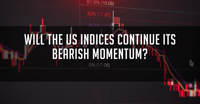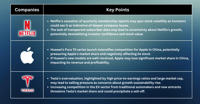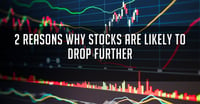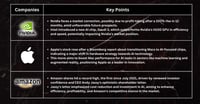Financial market volatility is expected to persist next week as risk asset momentum slows and a major jobs report looms.
The first quarter of the year ended on a high note on Friday for US stocks, with an inflation gauge suggesting decreasing prices and sparking a surge. Investors hope that April will live up to its excellent track record for stock investors, as it has traditionally been the second-best month for the S&P 500 and the best month for the Dow Jones Industrial Average.
Notwithstanding the optimism, the March jobs data, due on Friday, will be a major litmus test. However, as it is Good Friday, the stock market will be closed that day. While the Federal Reserve is trying to cool down inflation, the labour market has remained resilient. Fed policymakers have pointed to wages as a factor that has kept inflation sticky.
Despite the recent layoff announcements, the American labour market has been witnessing healthy growth. This is negative news for the Fed, which is expecting slightly larger cracks in the market to contain inflation.
According to economists, the economy added 235,000 jobs in March. Nonfarm payrolls increased by 311,000 in the prior month, exceeding the Dow Jones projection of 225,000, indicating that the labour market remained strong.
The market got a boost Friday after the Fed’s preferred inflation gauge showed a cooler-than-expected price increase. The core Personal Consumption Expenditures index, which excludes energy and food costs, rose 0.3% in February, less than the 0.4% expected by economists earlier.
The market always has uncertainty, but it has been heightened recently with significant volatility due to the pandemic's impact on the global economy. With vaccine rollouts and government stimulus measures, optimism has been increasing. Nevertheless, investors remain cautious when analysing market indicators to manage their positions.
Furthermore, concerns about inflation also persist. The recent surge in bond yields may indicate that the market is pricing in higher inflation expectations, which could affect stock prices. If inflationary pressures continue to build up, the Fed may need to adjust its policies, which could affect the overall market.
While there are still positive economic indicators, cautiousness remains among investors. Volatility may continue as upcoming job reports, inflation rates, and economic growth levels significantly impact the market's direction.
Fullerton Markets Research Team
Your Committed Trading Partner














